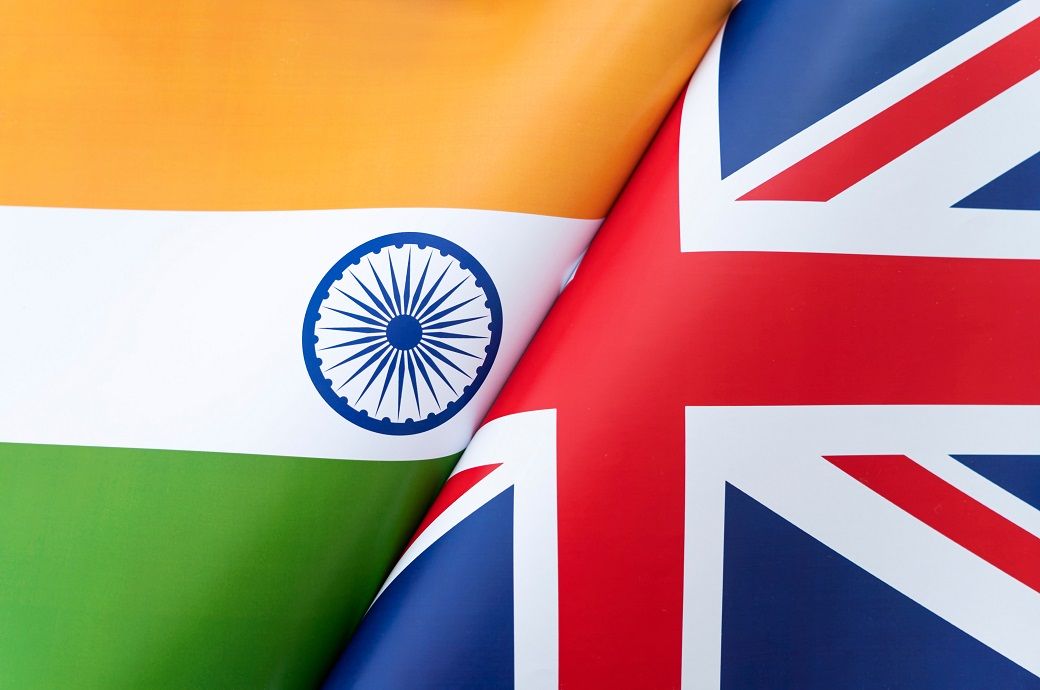
The deal signed by Commerce Minister Piyush Goyal and his British counterpart Jonathan Reynold in the presence of Prime Minister Modi and UK Prime Minister Keir Starmer is designed to reduce tariffs on a wide range of goods—including textiles, whisky, and automobiles—while also enhancing market opportunities for businesses in both countries.
The trade talks, which spanned over three years with intermittent progress, reached a conclusion in May. Negotiators on both sides accelerated efforts to finalise the deal against the backdrop of global tariff disruptions set in motion by the Trump administration.
Bringing together two of the world’s top economies —ranked sixth and fifth globally—the deal sets an ambitious goal of increasing bilateral trade by $34 billion by 2040.
For the United Kingdom, this is its most substantial trade pact since its departure from the European Union in 2020. For India, it marks a major strategic breakthrough, establishing a comprehensive economic partnership with an advanced economy and potentially laying the groundwork for similar agreements with the European Union and other global partners.
According to the agreement, 99 per cent of Indian exports to the UK— encompassing over 1,143 crucial textile and clothing items, as per reports—will now enjoy zero-duty access, providing Indian exporters with a stronger foothold in the British market.
Reacting on the development. Sudhir Sekhri, Chairman AEPC, said, “The signing of the landmark India-UK bilateral trade agreement, marks a significant milestone in strengthening the strategic and economic ties between the two nations. This deal will usher a new era of garment trade with the UK. This agreement will enhance market access, spur investment and job creation in the garment sector, besides creating new opportunities for businesses and consumers on both sides.”
He further added: “The India-UK CETA will not only give competitive market access to the Indian apparel products in the UK market but also increase the trust and reliability factor by streamlining customs procedures and mutual recognition of standards, thereby, reducing the compliance burdens for the Indian apparel exporters. With duty-free access, the apparel exports to the UK will witness a renewed thrust and moment in the coming years.”
Dr. A. Sakthivel, Honorary Chairman of Tiruppur Exporters’ Association (TEA) and Vice Chairman of AEPC, hailed the signing of the agreement and commended both the Prime Minister and the Ministry of Commerce & Industry for what he called a transformative deal for India’s textile and apparel industry.
He maintained: “This agreement paves the way for a historic leap forward for our industry,” adding, “It resonates strongly with our national vision to place India among the top three global economies.”
Dr. Sakthivel further shared with Fibre2Fashion the deal’s benefits for regional textile hubs, citing improved access for key manufacturing centres including Tiruppur, Surat, Ludhiana, Pune, Chennai, West Bengal, and Assam.
He also pointed out that Indian exporters are now in a much stronger position to compete with counterparts from Bangladesh, Vietnam, and China in the UK’s textile and apparel market.
Reflecting on the potential boost to India’s readymade garment (RMG) sector, Dr. Sakthivel said: “We anticipate that exports of RMG to the UK will more than double—from $1.45 billion to approximately $3.25 billion. Within this, knitwear alone is expected to grow from $0.8 billion to around $2 billion, accounting for nearly 70 per cent of total RMG exports to the UK.”
Speaking to Fibre2Fashion, N Thirukkumaran, chairman of Esstee Exports and General Secretary of TEA said India’s apparel exports is expected to double in the next 2-3 years, thanks to the India-UK CETA.
He also noted that this agreement could serve as a model for future successful FTAs, including with the European Union.
Thirukkumaran further emphasised the positive impact of the India-UK CETA on job creation in the textile sector, which remains the second-largest source of employment in India after agriculture.
Meanwhile, interacting with Fibre2Fashion, Rahul Mehta, the chief mentor of the Clothing Manufacturers Association of India (CMAI) underlined that “the India-UK CETA is obviously going to have huge impact on textiles and apparel exports from India, with prices being reduced by close to 10 per cent.”
“While I may not share the euphoria of some of my peers, I do see our apparel exports rising from the current $1.3 billion to probably around $2.0 to $2.2 billion over the next few years,” said Mehta.
“That said, we must remember the zero-duty regime will likely take at least a year, if not longer, to come into effect. Plus, UK buyers have stringent compliance and sustainability requirements. Indian exporters will need to significantly upgrade their operations to meet these growing expectations—particularly around sustainability,” he added.
Though not overly concerned about the potential impact of the FTA on India’s domestic market, the CMAI chief mentor nevertheless expressed surprise that this issue has largely gone unnoticed in media discussions.
“It is zero per cent on both sides, remember!” Mehta concluded with a note of caution.
ALCHEMPro News Desk (DR)
Receive daily prices and market insights straight to your inbox. Subscribe to AlchemPro Weekly!